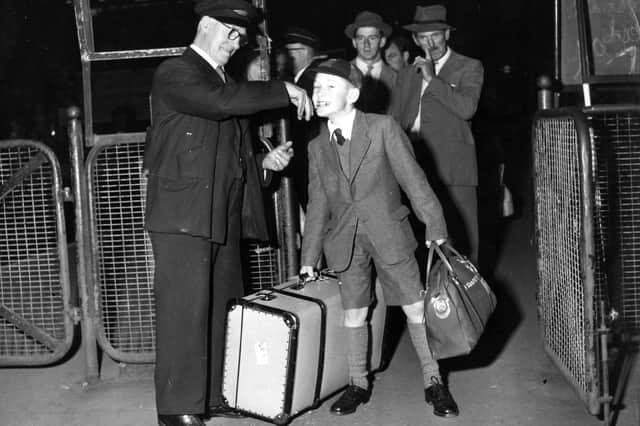Boris Johnson: What top-tier boarding schools can do to Britain's future leaders revealed in Sad Little Men by Richard Beard – Laura Waddell


This experience, Beard argues, gives him an insight into the formative years of British prime ministers, particularly those of a similar age, like Boris Johnson and David Cameron.
The reader gets a good gawk into this exclusive and disturbing world with its outsize influence on the governance and national identity of Britain – and much else besides. It certainly made me reflect on some of the strange tweedy characters I’ve met in the world of publishing.
Advertisement
Hide AdAdvertisement
Hide Ad“We took our places in an England theme park with almost accurate historical costumes (some dolt usually forgot to remove a digital watch, or his aviator specs.) Our collective recreation of an idea of England featured the Great House with grounds and staff, the joy of Sten-gunning a foreign intruder and the unreality of life without cars.”
Beard paints these institutions as crumbling, maddeningly beholden to archaic rules, and stuck in time – hey, sounds like Westminster. In these often cold and damp but grand surroundings they forever relived the glory of Britain winning the Second World War, which loomed extra large in the boys’ imaginations, lessons and play.
“We merged with the past, assiduously protected from modernity. Which, as a side-effect, kept us safely insulated from contemporary Britain. Tom Brown’s schooldays at nineteenth-century Rugby were more relatable to us than Tucker’s troubles at TV’s Grange Hill.”
Beard describes psychological patterns in his peers: a perpetual boyishness, cheerful evasion of responsibility, an expectation to club together with only one’s own ‘type’, suspicious of anyone else, emotional distance forged from being separated from mummy and daddy at a tender age and a hardened lack of sympathy for boys who did cry at night.
Today’s government frontbenchers, like Rishi Sunak, quite demonstrably have little insight into the plight of the common man. For those who grew up with an elite education, filing past statues of old boy British leaders into their lessons each day to remind them of their place in history, that exclusion was part of the deal for which their parents paid eye-watering fees.
Upholding the British class system, filtering boys into top jobs, remains their role in society.
Comments
Want to join the conversation? Please or to comment on this article.

